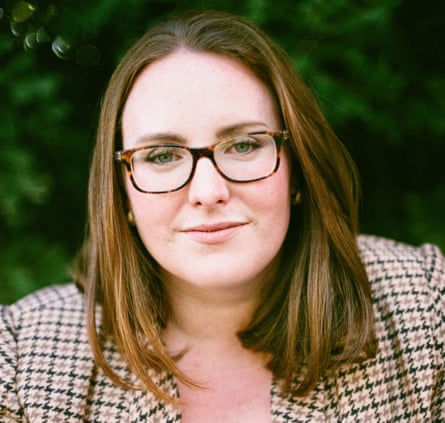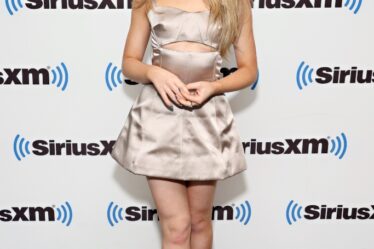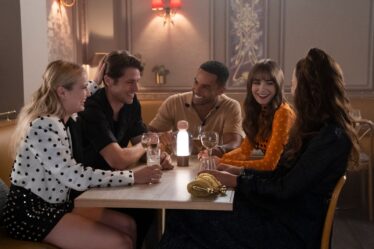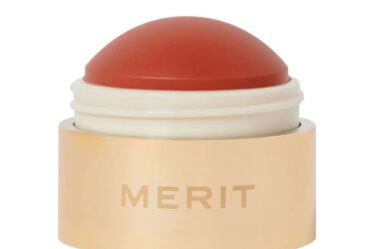
Until I was 14, I believed I was my father’s eldest child. But in 2006, a month before he died, he sat me down at the kitchen table – alone, my younger sisters asleep – for the kind of talk I knew would involve bad news. “I need to tell you something.” He looked more distressed than when he told me his lung cancer had returned and had spread to his brain. “I have a son.”
My mum stood beside him, silent, as he told me about Ryan, a boy 16 months older than me. Ryan lived in Pennsylvania, driving distance from our house in New Jersey, and my dad explained that he had arranged for them to meet recently, at a local horse farm. Part of his farewell tour.
I felt panic rise in my throat. “How?” I asked. “It was … an accident. An error in judgment. Early in my relationship with your mum,” he replied. “He’s not your family though, right?” My dad nodded, and I hugged him, avoiding the wound on his chest. I promised not to tell my sisters.
Looking back, I don’t know how to explain or excuse my response, other than to say that once I understood our time together was limited, everything felt like a threat. I wanted my dad to myself.
My sisters found out on their own, of course, and in the years after his death, we spoke of Ryan in whispers. One sister to another, relaying what little information we had about “the boy” or “Dad’s son”. Never “our brother”.
I could feel him – my phantom limb – as we marched in lockstep towards adulthood, as we moved from our teens into our 20s. I went to grad school, moved to New York, and started teaching. Ryan graduated from college, joined the military, and started flying planes. I knew because of LinkedIn, the chilliest, most distant form of social media. I sent him a friend request one night when I was drunk and he accepted. And for almost 10 years, we watched each other on our screens, getting only the facts – job histories, current locations, and one photo each. I could see him looking and he could see me. Someone has viewed your profile.
Then in September 2023, a message appeared: “How are you? I saw that you wrote a book. I’m in flight school for the navy now after some time in the corporate world. What are your plans for the future? Are there any questions that I can answer?”
“My novel comes out in early January,” I wrote back. “But flight school? Incredible.” I included my phone number and went to bed, aware of what I didn’t say: that my book was a kind of apology, a story in which a deranged and grieving young woman uses social media to reach out to her long-lost brother. One in which the brother is vindicated by the callousness of the family that rejected him.
The next morning, a text: “If you come to Texas on tour, I will need to get a copy.” We texted about my sisters, his job, the climates in Texas and Los Angeles. It was surprisingly easy to talk, even if there was one subject we were avoiding: the man who linked us to one another.
Finally, from him: “I would love to hear any stories you have to share and pictures would be great too. I don’t know what you looked like or did.” That night, I couldn’t stop wondering about Ryan’s childhood. I thought of my own little boys. What would I do if their father chose not to be involved in their lives?
I built an album: pictures of my dad, me and my sisters, my kids – Ryan’s nephews. I wondered if it would all be too painful. Here is the man you were missing. Here he is helping me blow out my birthday candles. Here we are on the beach. Here he is sick, dying. Here I am, holding his hand.
I sent it, feeling obliged to fulfil Ryan’s one, small request. He sent me back a photo: a baby in blue velvet with a four-toothed smile and an upturned nose. Hair, reddish like mine, peeking from under a cap.
“I think we looked similar as little ones,” Ryan said. “I can’t say I have a clear picture of the man.” I tried to fill in the gaps: “Whip-smart. Very intense. Dry sense of humour. Phenomenal dancer. Loved dogs. Very sick for a long time.”
I went to bed that night angry with my dad, who had been dead for 17 years, and angry at myself, for my own cowardice and cruelty. For thinking I was ever the victim of anything, when I had experienced such a relatively charmed childhood.
The next day, Ryan asked for some of my dad’s writing. Looking through the letters my dad left me, I found one I hadn’t read in years. It ended: “Forgive my shortcomings, and your own. Don’t be sad when the acute pain of sorrow grows gratefully more distant. Be glad that life goes on. I’ll always love you.” I cried reading it. In spite of everything, I missed him. I was mad at him, and I loved him.
I sent it to Ryan. I thought once more of my own boys. “He would have been very proud of the man you’ve become. I’m sorry he didn’t give himself the chance to be.”
Our texting tapered off, and we went back to our lives. But every so often, I look up flights from Los Angeles to Houston. I picture us in a coffee shop – him in his military regalia, me in my writerly black. We are so different. Of course we are. We have lived different lives. But even our Texas waiter can see that we are the same. His smile is my smile. His laugh is my laugh. He is the brother, and I am the sister.



